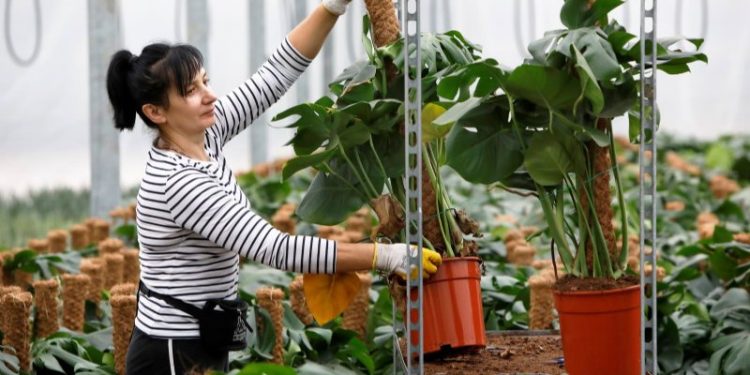Members of CNV Vakmensen who work in greenhouse horticulture agreed to the final proposal submitted by the employers at the end of December. “It’s not exactly what we’re betting on, but it’s a plus. Participants would rather have a somewhat meager collective agreement than be completely empty-handed,” says negotiator Jeroen Varnaar of CNV Vakmensen.
The new collective agreement, among other things, states that the minimum wage will increase by 10.1 percent. “Workers with the lowest wages (B) will earn 2-3 percent more,” Varnaar explains. “This is due to the reclassification of this scale.” The rest of the workers will receive a wage increase of a total of 5 percent, divided into two stages: from January 1, wages will increase by 3 percent, and from July 1, another 2 percent will be added.
CNV Wakmensen made an attempt this week to stretch the wage increase slightly, but employers held their ground. “In 2020 and 2021, there was no collective agreement at all, which means there was no increase in wages,” says CNV negotiator Wakmensen. ‘Our members feel it’s important that something be added this year. That’s the main reason we agreed to the final proposal.’
*Also read: Greenhouse horticulture employers offer 5 percent pay rise
What also comes into play when considering accepting a final offer from employers is the fact that some greenhouse gardening companies are having a hard time staying afloat. This is due to high energy costs. Thus, this winter, a large number of companies are in a state of stagnation. “Employees see it too. Keeping a job is also important,” Varnaar emphasizes.
In addition, agreements were reached in a new collective labor agreement on a higher travel allowance and a lowering of the professional adult age from 21 to 20 years. This new Code of Administrative Offenses is valid throughout this year.
FNV does not agree
Most FNV members, unlike CNV Vakmensen members, announced last week that they did not agree with the employers’ final proposal. According to the union, there is too much of a gap between the final offer and FNV’s wage requirements. “We are disappointed and ask employers to offer a better offer,” Linda Slugter, director of FNV Agrarisch Groen, said at the time.
The FNV wants the rise in the cost of living to be reflected in wages. The union also proposes to include general price compensation in the collective agreement. Slugter said last week that FNV understands that greenhouse gardeners are having a hard time too, but she also sees that more and more employees no longer know how to make them financially strong.
*Read also: FNV disagrees with cao’s final proposal for greenhouse horticulture
Chairman Adri Bohm-Lemstra from Glastuinbouw Nederland says he is sorry that the FNV did not agree, but at the same time he is glad that there is a new collective agreement for the sector. “We have a base again. Time that would otherwise have to be spent on the implementation of the collective agreement, we can now invest in the Human Capital Development Program and the “development throughout life” project. We must make the sector interesting and keep it interested for employees at all levels “.










